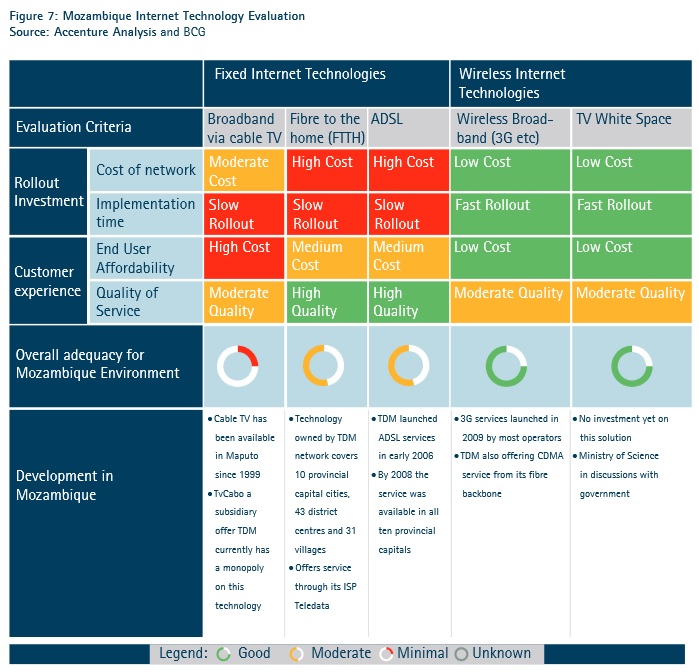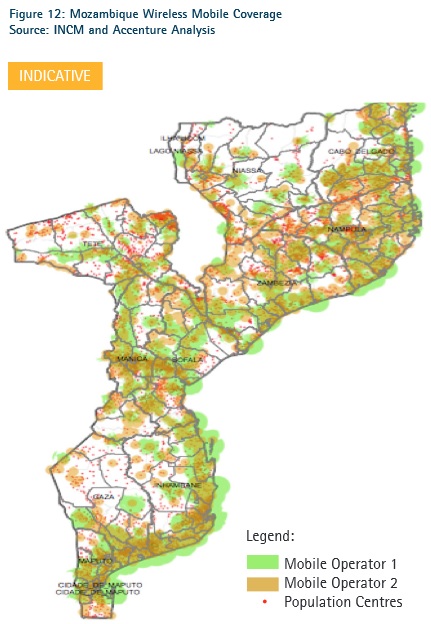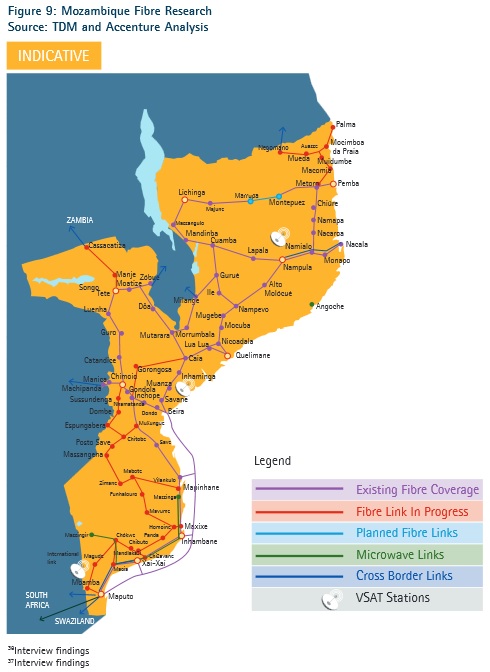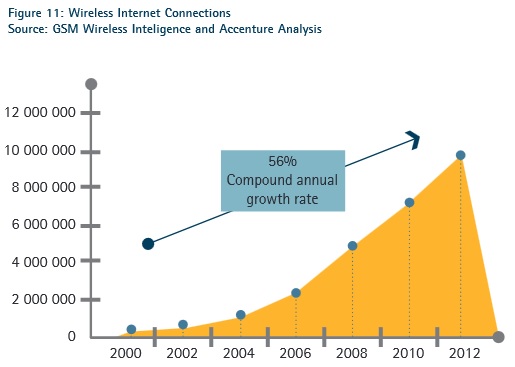Infrastructure investment and citizen awareness are needed to encourage Mozambique’s internet development
The Mozambican Government has made reforms to support national Internet development. Despite these steps, the nation still lags much of the continent in terms of connectivity.
As a thorough study authored by Accenture and commissioned by DFID, COMESA, and Mozambique Regional Gateway Programme aptly points out, Mozambique faces substantial challenges in building out sufficient ICT infrastructure to connect its geographically spread-out population. For one, though a huge share of Mozambique’s population lives in Maputo, millions live in rural areas that are harder to reach with undersea broadband connectivity. Moreover, a 16-year civil war destroyed much of the nation’s communications infrastructure.
In spite of these challenges, Mozambique’s ICT infrastructure has blossomed in the past decade and the nation is now one of the fastest growing economies in the world.
In particular, the Accenture report asks what level of investment in Internet is needed to meet Mozambique’s future growth potential. More specifically: what investment in infrastructure is needed, what prevents internet development, and what is needed from the government?
Background:
- 8 million mobile subscribers at the end of 2012, or 33% mobile penetration
- 60-70% of mobile subscribers live in Maputo (the capital)
- Internet penetration is estimated at 5% (1 million people)
Timeline:
- 1981: Establishment of Telecomicacoes De Mocambique (TDM) following end of government monopoly of the sector
- 1992: Telecommunications Law made TDM an independent company with national telecoms regulatory authority INCM
- 1999: Telecom sector reform legislation was drafted to open the market to greater investment
- 2001: INCM issued a tender for mobile licenses – Vodacom and mCel won out of 12 companies
- 2004: A new telecommunications law defined mobile and internet sectors
- 2010: A third mobile license was awarded to Movitel – Vodacom and mCel soon cut prices
Availability:
- Telecoms law is under revision but lacks a clear vision and roadmap
- Competitions is limited by high barriers to entry (high cost of infrstructure)
- Recommendation: A clear broadband strategy is needed to align sub-sectors
There is general Internet availability, but our key limitation is the speed and stability of Internet connections. The networks are overloaded and hamper our expansion of branches outside of large towns due to their inability to transfer data effectively” – Large Financial Institution
Quality:
- Poor service quality is common
- Business operators cannot easily expand outside of major cities (Maputo, Beira, Nacala)
- Recommendation: Internet needs of SMEs should be studied
- Recommendation: TV white space frequencies should be tested in rural areas, namely with existing community media centers (CMCs)
We see the potential of implementing innovative technologies like TV white space to connect rural areas. To this end, we have started initial discussions in Mozambique” – Teemu Seppala – Ministry of Science
Affordability:
- Mobile internet costs between $30 and $50 per month
- Fixed broadband costs between $100-$300 (one of the most expensive nations globally)
- Recommendation: promote local production of low cost computers
- Recommendation: give tax credits to small business to help them access new internet-enabled equipment
- Recommendation: utilize the Universal Access Fund to provide rural access
The regulator has made a concerted effort to improve the ICT environment through new cost models, investment and technical support from the World Bank in past years” – Isabel Neto – World Bank Senior ICT Specialist
Awareness:
- A skills gap exists to operate internet devices
- E-commerce is limited and laws do not protect online consumers
- Recommendation: create ICT labs to build awareness among the population
- Recommendation: find applications to boost SEM productivity
- Recommendation: work with the government to built sufficient regulation to protect online commerce
Most farmers in Mozambique are still in the basic texting phase and have not adopted the Internet. Almost all small business are technologically illiterate, understanding on how to use a computer or smartphone is low, nor do they see the value in the use of the Internet in their businesses yet” – Todd Kirkbride, Director — Public Private Partnerships TechnoServe
As the authors mention, there is no overall solution to internet connectivity. That said, individual contributions to solving the sub-issues have the potential to increase access. Maximizing these opportunities takes effort of government, business, and broader society.
Major cities have good mobile coverage but rural areas often have poor or no coverage.
Existing fibre coverage (purple) connects major corridors, but terrestrial cables are planned for the northeast and southern areas.
The number of wireless connections has taken off since 2006 and now stands at over 10 million.
Source: “Unlocking the Potential of the Internet: A Scoping Study in the Mozambique Regional Corridors of Beira and Nacala,” Accenture, April 2014.
















 Twitter
Twitter Facebook
Facebook Pinterest
Pinterest